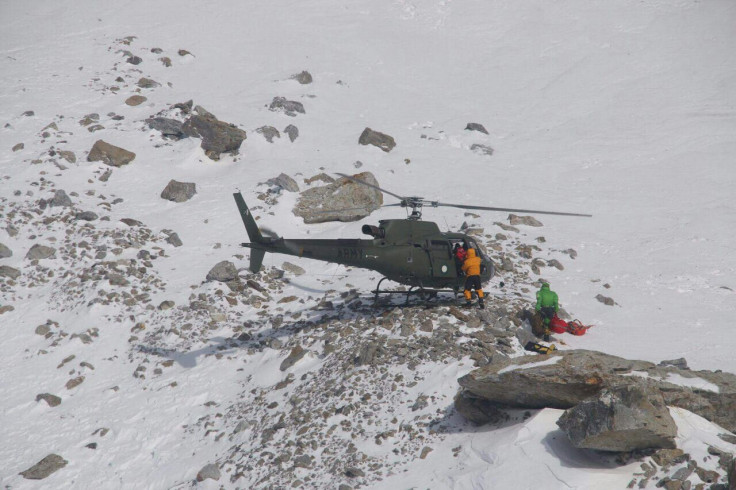British woman brought back to life after being dead for six hours
KEY POINTS
- A British teacher suffered cardiac arrest during a snowstorm in the Spanish Pyrenees.
- Doctors were able to restart her heart six-hours after it stopped beating.
British citizen Audrey Mash and her husband Rohan Schoeman faced a sudden snowstorm while walking in the Spanish Pyrenees. Mash suffered extreme hypothermia and collapsed while trying to return. When the emergency rescue team air-lifted her to a hospital, Mash did not have any vital signs. More than six-hours since her heart stopped beating, doctors were able to restart her heart.
The couple was caught by a sudden snowstorm in the mountains. Schoeman recounted that Mash started saying random things before collapsing on November 3, at around 1:30 PM local time. When Schoeman tried to find a pulse and see if his partner was breathing, he was unable to find signs of life.

Schoeman sent pictures of the place where the couple was stranded to firefighters. At around 3:40 PM local time, an emergency rescue team was able to reach Mash. The medics were unable to find vital signs as well.
From Vall de Núria near the French border, Mash was air-lifted to Barcelona's Vall d'Hebron Hospital. Doctors at the hospital discovered that Mash had suffered severe hypothermia resulting in a cardiac arrest. When Mash reached the hospital at 5:44 PM local time, her heart showed no electrical activity. Her kidney and lungs had also shut down.
Doctors noted that Mash's body temperature was 18C instead of the regular 37C. The team of specialists decided to warm up Mash while creating an artificial blood flow using a special heart and lung machine. Once Mash's body reached 30C the doctors tried to restart her heart with a defibrillator unsuccessfully.
Finally, at 9:46 PM local time, the doctors were able to jump-start Mash's heart.
Doctors remained worried about the impact of blood starvation on parts of Mash's body. However, within three days of her cardiac arrest, Mash regained consciousness and speech. Even though she did not remember anything that happened on the day of the incident, Mash did not have any severe damage.
The Sun reported that Eduard Argudo, the doctor who treated Mash, suggested it was extreme hypothermia which saved the woman's life. Due to the extreme hypothermia, her body functions had slowed down. If she suffered the same cardiac arrest without her body temperature dropping so low, she might not have survived. Argudo also pointed out that Mash's case was the longest anyone in Spain survived after their heart stopped beating.
© Copyright IBTimes 2025. All rights reserved.




















